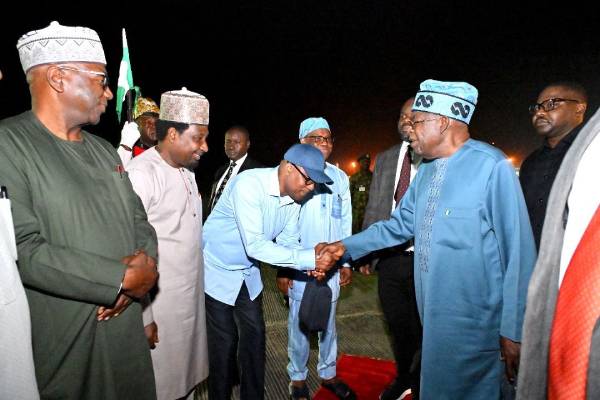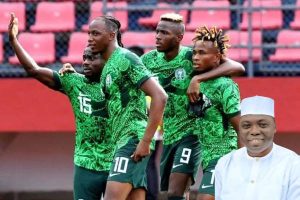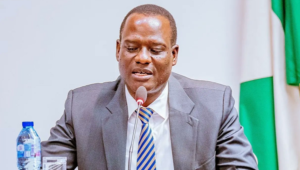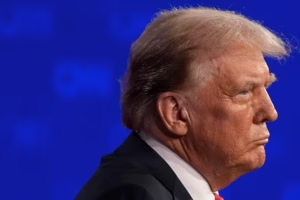President Bola Ahmed Tinubu returned to Abuja around 1:20 a.m. on Thursday after a three-day state visit to Brazil that produced a raft of agreements aimed at strengthening Nigeria’s economic and diplomatic ties with South America’s largest economy.
The President, who arrived aboard the presidential jet, was received at the Presidential Wing of the Nnamdi Azikiwe International Airport by a high-powered delegation including Plateau State Governor Caleb Mutfwang, Kaduna State Governor Uba Sani, Imo State Governor Hope Uzodinma, and Kwara State Governor AbdulRahman AbdulRazaq.
Also on hand were the Speaker of the House of Representatives, Tajudeen Abbas; Deputy Senate President, Barau Jibrin; Chief of Staff to the President, Femi Gbajabiamila; National Security Adviser, Nuhu Ribadu; and several ministers, including Nyesom Wike (FCT), Abubakar Atiku Bagudu (Budget and Economic Planning) and Bello Matawalle (Defence, State).
During the visit, Nigeria and Brazil signed five Memoranda of Understanding (MoUs) covering aviation, trade, diplomacy, science, and finance. Among the highlights was a Bilateral Air Services Agreement that will allow direct flights between Lagos and São Paulo, to be operated by Air Peace.
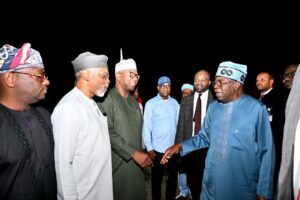
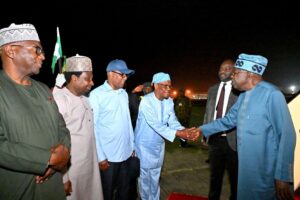
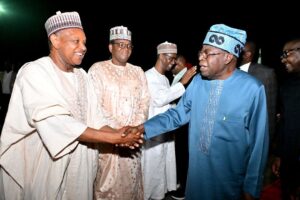
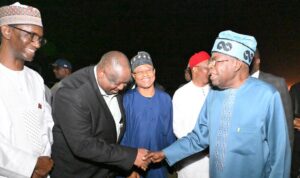
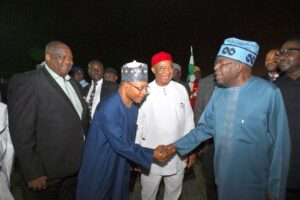
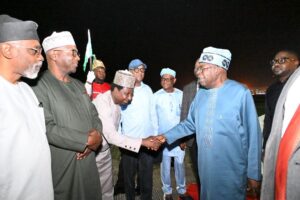
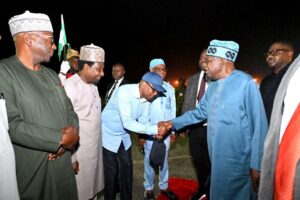
Another breakthrough was the imminent return of Petrobras, Brazil’s state-owned oil giant, to Nigeria—five years after it pulled out of joint ventures. “We have the largest gas repository. So I don’t see why Petrobras doesn’t join as a partner in Nigeria as soon as possible,” Tinubu said at a joint press briefing with President Luiz Inácio Lula da Silva in Brasília.
Other agreements centred on political consultations, scientific collaboration, and agricultural financing through Nigeria’s Bank of Agriculture and Brazil’s National Bank for Economic and Social Development.
Tinubu also used the visit to court Brazilian investors, assuring them of Nigeria’s transparent and stable economic climate. He pointed to recent growth in the capital market as evidence of renewed investor confidence and pledged reforms to unlock capital, protect investments, and drive innovation.
In a meeting with Nigerians living in Brazil, the President urged the diaspora to play a more active role in national development, identifying technology-driven growth and food security as pillars of a prosperous future. “We must bring Nigeria to the forefront of Africa’s progress, driven by technology, food sovereignty, and the courage to change our destiny,” he said.
The visit featured red-carpet honours, bilateral talks, and cultural exchanges, which both leaders described as the beginning of a new era in Nigeria–Brazil relations.
Tinubu’s trip to Brazil followed his participation at the ninth Tokyo International Conference on African Development (TICAD9) in Japan.

